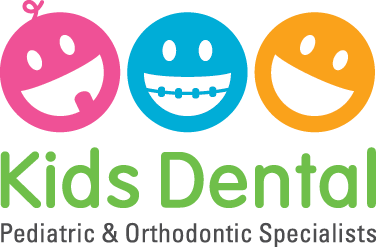Having orthodontic treatment can seem like a long and painful process. But it doesn’t have to be. Fortunately there are easy fixes for some common complications with braces:
- Sensitivity
Your teeth and gums may become more sensitive to touch and temperature whenever your braces are adjusted. It is common to experience some discomfort while teeth are shifting. It may be helpful to take a mild painkiller or to apply a numbing ointment to areas of the gums that are tender.
- Sores
The archwire of the braces or the brackets that hold it in place may rub against your gums. If you develop cuts on the inside of your cheeks or lips, apply a small ball of orthodontic wax to the chaffed area. Rinse out your mouth with warm salt water or an antiseptic mouthwash to avoid sores becoming infected.
- Chapped lips
Wearing braces or a retainer may cause your lips to dry out as they stretch wider over teeth. A lip balm or petroleum jelly can help soothe dry or chapped lips. If you find that your braces are chaffing or rubbing uncomfortably against your lips, consult your dentist.
- Tongue issues
As your tongue adjusts to the feeling of braces, it may catch on the brackets or get poked by the wire. In time you will learn to adapt the way you eat and speak. But if your tongue gets cut or irritated, rinse with a warm salt water or an antiseptic mouthwash.
- Broken Archwire or Loose Brackets
Through the force of regular adjustments, the archwire may eventually snap or bend, and the brackets that hold it in place may become loosened. If there is any damage to your braces at any point, consult your dentist right away to avoid injury or delayed treatment.
- Ligatures
Ligatures and bands are the tiny elastics and other parts connected to the braces. If possible, save a dislodged band for repair. If you accidentally swallow a ligature, do not panic. Be sure to contact your our office as soon as possible to have any parts of your braces secured or replaced.
- Inflamed gums
While you undergo orthodontics, your bones and gums are moving. It is normal for gums to become irritated and inflamed as a result of this movement. But gums that become too inflamed or receded can actually impede treatment. In some cases your dentist will need to treat your gums before continuing with orthodontic treatment.
- Speech impediments
Orthodontic treatment may affect the way you speak. Such speech impediments are usually only temporary. Your pronunciation will most likely adapt as you adjust to the sensation of braces or a retainer. In some cases, your speech may be affected for the duration of your treatment, so be patient with yourself.
- Jaw pain
Jaw pain is common at the onset of orthodontic treatment as the bones are being manipulated. If the discomfort is more pronounced or prolonged, speak to your orthodontist.
- Mobile teeth
Following treatment, your teeth will remain susceptible to movement for a time. This is why wearing a retainer is so important. While you wear braces, take care not to eat hard foods such as corn on the cob, nuts, carrots and apples, as well as sticky food like bubble gum, and until your teeth have fully set into their new position.
The Silver Lining
Braces aren’t forever. Keep in mind the beautiful, healthy smile awaiting you at the end of orthodontic treatment. In the meantime, why not have fun decorating your brackets with colourful “elastics” for holidays ,special occasions, such as red and pink for Valentine’s Day or green for St Patrick’s or just because!!
If you have any questions about braces or would like to arrange for a consultation, contact Kids Dental Group today or visit us at one of our locations in Markham, Stouffville and Richmond Hill.
